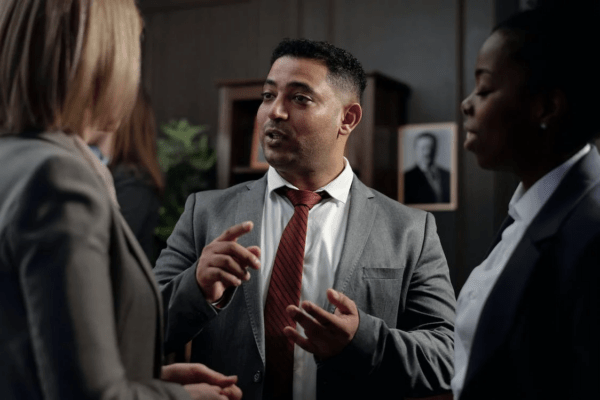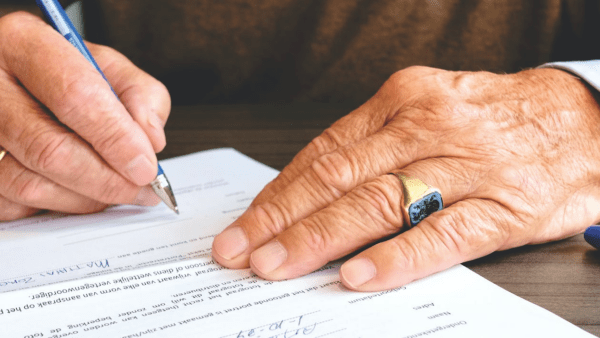
Legal and Ethical Considerations in Selecting a Power of Attorney
In this article, we’ll discuss the legal and ethical considerations that you will need to make when selecting a Power of Attorney.

Selecting a Power of Attorney (POA) is a pivotal decision entwined with both legal implications and ethical considerations. This appointment grants an individual the authority to act on behalf of another, particularly when the person granting this authority becomes unable to make decisions.
Exploring the legal prerequisites and ethical facets while considering various elements is essential when designating a POA.
Legal and Ethical Considerations in Designating a Power of Attorney
Meeting Legal Requirements
Establishing a POA necessitates strict adherence to legal requisites dictated by the jurisdiction. These prerequisites, varying across regions, outline specific criteria imperative for the validity of the POA. Among these are the formalities surrounding documentation, ensuring the appropriate paperwork is completed accurately and comprehensively.
Additionally, the grantor’s mental capacity becomes a focal point, as they must possess the cognitive ability to understand the implications and scope of the authority being bestowed upon the designated agent. Fulfilling these legal mandates is fundamental to ensure the legality and enforceability of the Power of Attorney arrangement.
Mobile notaries in North Hollywood, California play a crucial role in facilitating this process by providing convenient and accessible services for executing Power of Attorney documents, ensuring compliance with legal requirements and best practices.
Identifying the Right Agent
Selecting the right agent for the Power of Attorney role requires a thorough assessment of various attributes. Trustworthiness stands as a fundamental criterion, necessitating a person of integrity and reliability. Competence is equally crucial, demanding someone capable of handling the assigned duties diligently and effectively.
Additionally, the chosen individual should possess a comprehensive understanding of the responsibilities they are to shoulder, ensuring they comprehend the gravity of the role and the decisions they may be required to make on behalf of the grantor.
This selection process demands a discerning eye, seeking out someone who embodies not only trust and competence but also a profound grasp of the commitment they are undertaking as an agent in the Power of Attorney agreement.
Communication and Transparency
Effective communication forms the bedrock of a successful Power of Attorney arrangement. Establishing an open dialogue channel between the grantor and the designated agent is essential.
This exchange ensures a comprehensive understanding of the grantor’s aspirations, principles, and desires, thereby fostering a shared perspective between both parties.
Transparent communication regarding healthcare directives, financial intentions, and future expectations empowers the agent to act in accordance with the grantor’s wishes. It lays the groundwork for a harmonious relationship where decisions align with the grantor’s values and intentions, ensuring a sense of confidence and trust in the agent’s role.

Specific Powers Granted
Detailing the specific powers granted to the agent within the Power of Attorney document is pivotal. Clearly outlining the boundaries and authority bestowed upon the agent is imperative to avoid ambiguity or misuse of authority.
This precision aligns with the agent’s goal of decision-making and responsibilities, ensuring a focused approach and preventing any potential overreach or confusion in executing the grantor’s wishes.
Legal Counsel and Advice
Consulting legal professionals during the Power of Attorney (POA) designation process is a prudent step. Professional guidance offers comprehensive insight into legal prerequisites, ensuring adherence to regulatory standards and mitigating potential legal pitfalls.
Expert advice aids in understanding the nuanced implications and multifaceted responsibilities tied to a POA.
This guidance extends beyond formalities, delving into the complexities of decision-making authority and the agent’s obligations. Legal counsel provides a framework for grantors to handle intricate legal jargon and comprehend the significance of specific clauses within the POA documentation.
Ultimately, seeking legal advice establishes a robust foundation for an effective and legally sound Power of Attorney arrangement.
Revocation and Amendment
Understanding the process for revoking or amending a Power of Attorney (POA) is crucial for grantors. Circumstances may evolve, necessitating alterations in the designated authority.
Grantors should be aware of the specific steps and legal requirements involved in revoking or making amendments to the POA to ensure alignment with their current preferences and situations. This clarity provides the necessary flexibility and control over the POA arrangement.

Making informed decisions about your Power of Attorney…
The designation of a Power of Attorney demands careful deliberation, balancing legal obligations and ethical responsibilities. By navigating the legal requisites, fostering transparent communication, and making informed decisions, individuals can ensure that their chosen representative aligns with their values and acts in their best interests.
Understanding the legal implications and ethical considerations of selecting a Power of Attorney is pivotal in making an informed and appropriate decision for oneself or a loved one facing this decision.













































